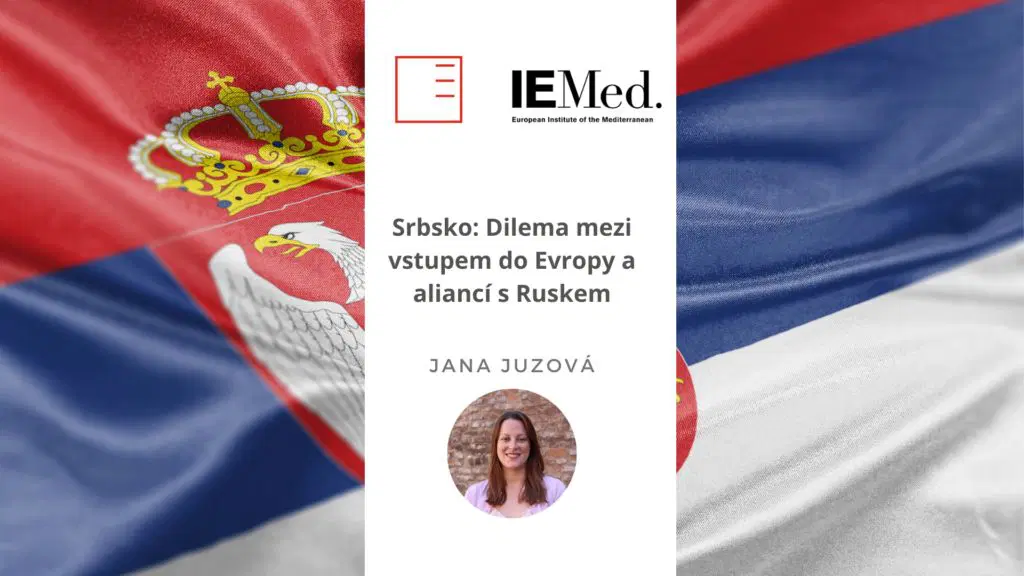IEMED | Serbia: The Dilemma between European Accession and Alliance with Russia
With Ukraine’s defence against Russia heading toward a stalemate in the second half of the year and increased pressure inside the EU to deliver on its promises to provide the country with needed financial and military support, Serbia’s ambiguous relationship with Russia and the West has been brought increasingly into the spotlight in 2023. The Serbian Progressive Party (SNS), ruling since 2012, and President Aleksandar Vučić have been responsible for continued democratic backsliding and have failed to align with the Union’s foreign policy during Serbia’s lengthy EU accession process, pushing the situation closer towards a tipping point in Serbia-EU relations. Senior researcher at EUROPEUM Institute, Jana Juzová, describes this in more detail in her article for the European Institute of the Mediterranean.
30. May 2024

The lack of reform efforts by Serbia’s government is reflected in the slow progress in the country’s EU accession process From the EU’s perspective, it is obvious that Russia’s war in Ukraine increased the importance that the Union attaches to the alignment of the candidates with the EU’s Common Foreign and Security Policy (CFSP), included under negotiating chapter 31. However, so far the EU has been falling short of motivating Serbia to change its relationship with Russia, despite being far and away the country’s main trading partner and investor.
You can read the full article here.





